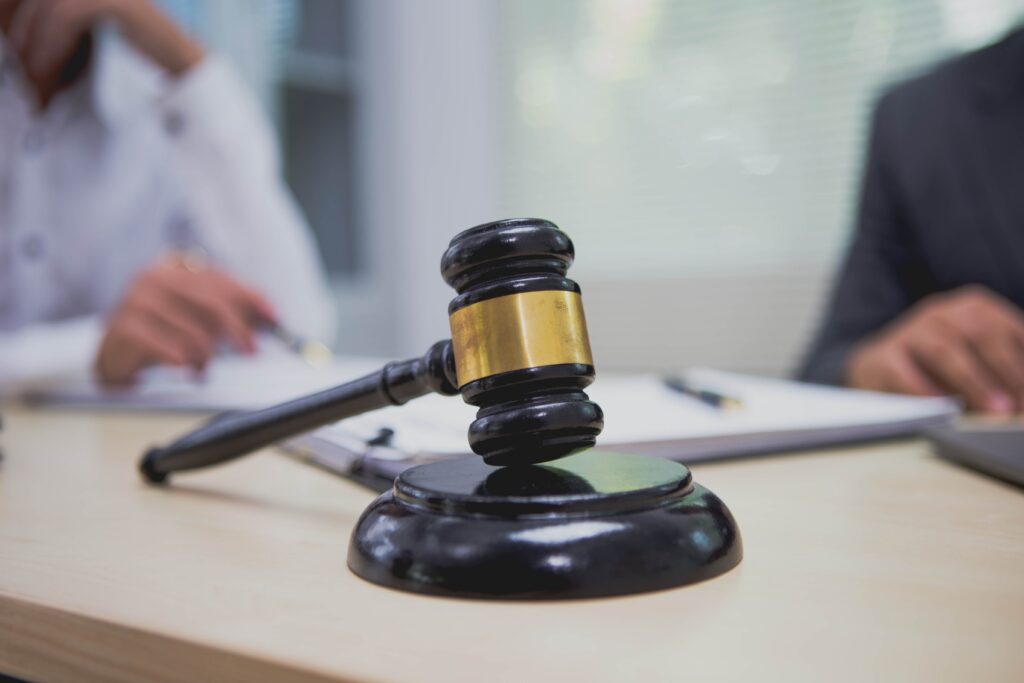You were driving down the road and stopped at a red light. A car suddenly slammed into you from behind. They were distracted by their cell phone, and the crash broke your arm and injured your neck. What should you do? The best option is to call a personal injury attorney and file a claim.
If someone hurts you because of negligent action, you can be eligible for compensation in a personal injury claim. There are two major types of damages in a personal injury claim: special and general.
Learn about special and general damages below. Then, contact a Tampa personal injury attorney in your city if you think you have a claim. The attorney will review your case for free and determine if you have a claim that can lead to compensation.
What Is A Personal Injury Claim?
A personal injury claim is any type of mental or physical harm that a person has because of someone’s negligence, carelessness, or malicious action. For a personal injury claim to succeed, the injured person must show that their injuries are from another person’s wrongful or negligent actions.
Personal injury claims are often complicated, and the legal system is the only way to determine whether a claim is valid. Those who have suffered losses and injuries because of another person’s negligence must show the insurance company or court that their injuries were caused by the other party’s violation of the duty of care.
Proving a personal injury claim requires strong evidence, such as eyewitness accounts, accident reports, photos, surveillance video, and more.
Common incidents that often result in a personal injury claim with special and general damages are:
- Auto and tractor-trailer accidents
- Pedestrian accidents
- Motorcycle accidents
- Slip and fall accidents
- Workplace accidents
- Medical malpractice, such as misdiagnosis and birth injuries
- Product injuries, such as from defective brakes or tires in a car accident
The best way to ensure compensation in a personal injury claim is to hire an experienced attorney to handle your claim. Your personal injury attorney will build the strongest case possible and attempt to negotiate a reasonable financial settlement with the defendant or their insurance company. Or, if settlement negotiations falter, your attorney can file a personal injury lawsuit in court.
How Do You Prove A Personal Injury Claim?
Obtaining damages in a personal injury claim, including special and general damages, usually involves proving another party was negligent. These are the steps required to prove negligence in a personal injury claim:
- Another person or entity violated their duty of care. For example, a truck driver has a duty of care to obey traffic laws and drive their truck safely to avoid accidents.
- The driver violated their duty of care by hitting your vehicle on the interstate.
- You suffered injuries in the accident caused by the trucker’s negligence.
- You have financial damages related to the accident, such as medical expenses and lost earnings.
Proving negligence in a personal injury claim is difficult, but your attorney has plenty of experience in this unique area of the law.
What Are Special Damages?
Special damages are specific and unique to the plaintiff. These are damages that are dollar-specific and related to the accident and injury. Special damages are also called economic damages. Some of the most common special damages in a personal injury claim are:
Past And Future Medical Costs
A serious auto or other accident may lead to injuries and medical bills. You may be entitled to compensation for medical expenses if your personal injury attorney proves that another party was negligent and injured you.
Some medical expenses you can have after a serious accident include ER and ambulatory services, hospitalization, rehabilitation, surgeries and other procedures, medical devices, and physical therapy.
If your attorney proves your case, you should receive full reimbursement for your current and future medical expenses. You can receive compensation for a severe, long-term injury for medical care months or years into the future. Calculating these special damages requires your attorney to work with your medical providers to understand your injuries, prognosis, and all future medical needs.
Lost Income
You may receive additional compensation for special damages, such as lost income. A serious personal injury may prevent you from working for weeks, months, or even years.
A catastrophic injury, such as brain damage, spinal cord injury, burns, or amputation, may make you unable to work permanently. In that case, you may be eligible for compensation for lost earning capacity. A personal injury lawyer will retain economic and occupational experts to understand how much income you will lose for the rest of your work life.
Property Damages
Suppose you are T-boned by a tractor-trailer at a busy intersection. Your car is totaled. The trucking insurance company should pay for a replacement vehicle. Or, if the car is repairable, the insurance company should pay for repair expenses.
Funeral Expenses
If your loved one died in an accident because of someone’s wrongful action or negligence, you can file a wrongful death lawsuit. You may receive special damages, including funeral and burial expenses.
Proving special damages in a personal injury claim or lawsuit means documenting the losses carefully. The injury victim and their personal injury attorney can estimate the special damages by totaling up the costs of the special damages mentioned above.
However, have a personal injury lawyer determine your future medical expenses and lost earnings. Many injury victims who don’t hire an attorney don’t realize the compensation they can receive from future losses. You don’t want to have far less money than you need for future medical care and lost income.
What Are General Damages?
General damages can be pursued for compensation in a personal injury claim. They are the non-economic or intangible damages you suffered as an accident victim. They are known as general damages because they refer to the losses any accident victim would generally suffer in the same situation.
These damages are more difficult to calculate than special damages. Fortunately, a skilled personal injury attorney knows how to determine what your pain and suffering, etc., are worth. They can review past settlements and jury verdicts for similar injuries in your area. Your attorney can interview your medical providers to document your degree of mental and physical pain and suffering, then craft a demand letter for adequate compensation.
Some of the common forms of general damages are:
Pain And Suffering
A serious injury may cause severe pain and suffering. Imagine if you suffered serious burns in a fire in your apartment building. The landlord may be found negligent in a premises liability claim. You can receive compensation for your physical pain and suffering related to the initial injury, treatments, and rehabilitation.
Mental Anguish
An injury victim may receive compensation for their mental and emotional anguish from the injuries. Suppose your spinal cord was severed in a tractor-trailer accident. You will probably be unable to function for the rest of your life fully.
This severe disability causes injury victims severe mental and emotional anguish. Your attorney will work with your doctors and mental health providers to understand how the injury affects you mentally. You should also receive compensation if you have a serious psychological issue related to the injury, such as PTSD, depression, or anxiety.
How Much Is A Personal Injury Claim Worth?
Calculating special damages in a personal injury claim takes substantial paperwork and documents. Your personal injury attorney will add up all of your expenses related to the accident and injury. The attorney will then estimate your potential future expenditures, including medical care and lost income from a disability.
Calculating general damages is more complicated. There are no specific numbers to support your general injury claim. So, the amount you receive is up to you to negotiate with your attorney and the insurance company. Or, if the case goes to trial, the jury will decide what your general damages are worth. The jury will listen to your story and assess the evidence to determine what your pain and suffering are worth.
The value of your claim will vary based on the circumstances and evidence. Common factors that influence the settlement amount include:
- Severity of injuries: A severe injury, such as a spinal cord injury, will lead to more general and special damages than a broken bone.
- Medical expenses: A spinal cord injury may incur millions in medical expenses, while a broken bone may incur $10,000 or $20,000 in medical bills.
- Pain and suffering: Physical and mental pain and suffering is severe for a catastrophic injury such as a brain or spinal cord injury.
- Insurance available: You may be unable to secure full compensation if the liable party has no or limited insurance. Many drivers have only $25,000 of bodily injury coverage per accident, which may be inadequate to cover your losses.
- Settling or going to court: A settlement isn’t for the full case value, but it’s guaranteed money in your pocket. Going to trial can lead to more compensation if the jury finds in your favor, but going to court is unpredictable.
Talk to a personal injury lawyer today to understand your case’s worth.
How Long Does A Personal Injury Claim Take To Resolve?
The time it takes to settle a personal injury claim depends on case complexity, severity of injuries, liability, insurance company cooperation, and the amount of money at stake. A more complex claim with serious injuries and millions in damages may take longer to settle than you would like.
Remember that with a serious injury, you may need to wait until you reach maximum medical improvement (MMI) to begin settlement negotiations. Your attorney will wait until your injuries have healed as much as possible to understand the full scope of your losses.
You may expedite your claim to some degree by doing three things:
- Seek medical attention as soon as possible after the accident. Any delay in medical care may lead the defendant and insurance company to question your injuries.
- Document and preserve any accident evidence: Were you in a serious auto accident? Take post-accident videos and photos to document the vehicle’s position after the accident.
- Talk to a personal injury attorney immediately: Your attorney will ensure you don’t say anything to the defendant or insurance company affecting your claim.
Generally, a minor injury claim can settle in one to three months, while a severe injury claim can take a year or more. The case will take longer if a court trial is necessary.
Do You Need A Personal Injury Attorney?
Yes, most injury victims benefit substantially by hiring a personal injury attorney. Your lawyer is an authority on personal injury law and knows how to prove negligence so you can receive compensation. Your attorney also knows how to accurately estimate your special and general damages to ensure you receive the compensation needed to recover fully.
A skilled personal injury attorney is adept at insurance negotiations for the best settlement and an experienced litigator who can build a strong case to present to the jury. You will almost always receive more money with an attorney’s help than you can alone. Most injury victims are unfamiliar with insurance companies and the legal system. They will likely make costly mistakes during settlement negotiations or in court that can result in less compensation or none.
Always have a personal injury lawyer review your case for free so you know if you have a case. If you do, your attorney will give you the best chance to maximize your compensation.
Speak To A Personal Injury Attorney Today
Did another person’s negligence cause an accident and injure you? You may be entitled to special damages and more in a personal injury lawsuit. Speak to a qualified personal injury attorney in your city today for a free consultation. They’ll outline your legal options and tell you if the case can lead to compensation. You do not need to pay upfront legal expenses; you pay nothing if your attorney doesn’t win your case.











